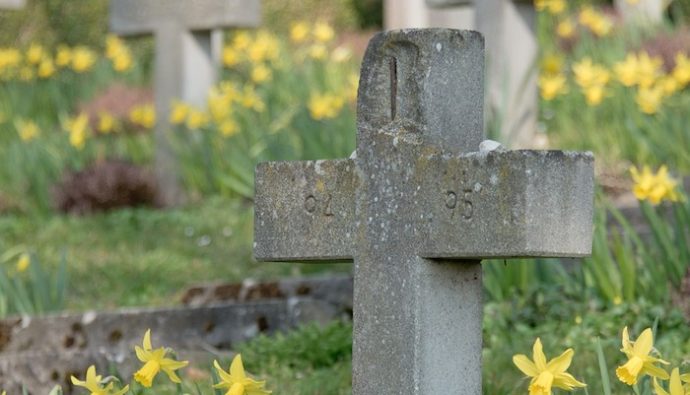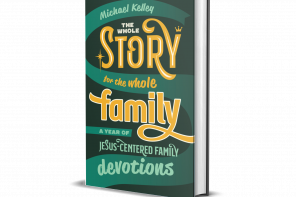It has been a difficult season for our family.
Just two weeks ago, our family traveled to Texas to visit with my mother-in-law who was suffering from an aggressive kind of cancer. A few days after we arrived, I got word that my sweet grandmother had passed away. Then, a day before her funeral, my mother-in-law also went to be with the Lord. That means our family, and our three children, will be involved in two funerals of women they knew and loved in five days.
One funeral is heartbreaking enough, let alone two in the space of so few days. At the time, I didn’t know what to tell them to make them feel better. Times like this it can be hard to know what to say. But we were blessed. We were blessed to live our lives with these amazing women in it, and with the help of a Final Expense Life Insurance policy (look here for more info) that they looked into before they died, some of their expenses have been covered. This is great, but we would’ve quite happily funded these costs between us if needed. Whilst they were lovely services, it was probably one of the hardest things we’ve ever had to do.
Not only can periods such as these be traumatic for young children, they can also be quite financially damaging for families, which is why many families tend to take out life insurance policies from providers such as policyme that can give some financial stability during tough times.
That’s a lot for anyone, but it feels like an awful lot for kids. And yet it is moments like these when our kids become our best teachers. Watching and being with our children has not only helped us grieve but also has taught us a few things that I’ll remember forever about death and dying. Our children have really helped us to process what has happened and they’ve given us the strength to deal with the aftermath too. When a family member passes away, it’s likely that the immediate family will have to clear their house out to put the house up for sale. This can be difficult, but it’s important to do this. When undergoing this task, it’s usually recommended that companies offering Deceased estate rubbish removals are contacted to help remove any items that need throwing away. Throwing things away can be difficult, especially when it’s not your home, but it’s important to do this to make sure that the home can be sold on. My children have really helped us to gather the strength to do this. I’d like to share a few of those lessons that my children have taught me with you today:
1. It is not morbid or awkward to talk about death.
The Apostle Paul wrote in 1 Thessalonians 4:13: “We do not want you to be uninformed, brothers, concerning those who are asleep, so that you will not grieve like the rest, who have no hope.”Many times we find it awkward or morbid to talk about death. We stumble around for our words, we talk in general terms about death, or sometimes we simply put our heads down to try and avoid talking about it at all. But Paul wanted these Christians to know that it was not wrong to grieve, but he wanted their grief to be an informed grief. And an informed grief is not morbid or awkward; it is a needed topic of conversation that benefits our souls.
I learned this from my kids this week, for this week we’ve had lots of conversations about death. What has been surprising to me, and even refreshing, is that they have talked openly about death and dying. They haven’t shifted around or tried to find just the right words, but instead, have openly talked through what happens when a person dies. That might be because in their Sunday school classes, there is regular mention of death, so they are not unaccustomed to the issue. Through that, they’ve come to understand that we have the freedom from the gospel to rightly think and talk about anything in the world, including death.
Death, in the end, becomes a celebration of life. We are all here remembering our loved one’s favourite things, from their favourite cake to their favourite music. Their life lives on within us, for we are part of them. When it comes to attending the funeral, we have decided that the kids absolutely must come too. Some families are afraid to bring their children to a funeral, worried that it will upset them. In reality, kids are more resilient than adults think. They’re more concerned with choosing the right casket colors and flowers than crying. They understand that this is a celebration of the person’s life and that we should embrace their favourite things as our own to allow them to live on. That way, death is just a new chapter of life.
2. Laughter and grief are not opposites.
There have been lots of tears shed in our family in the last week. But there has also been much laughter. That, I think, is a very good and right thing. It has been beautifully common in these days to be crying, and then be interrupted by laughter, many times brought on by children.
It makes me think of the way the mood seems to shift so quickly in the words of the psalmist. At one moment, everything is dark and enemies are attaching from every direction, and at the next moment there is an eruption of praise and worship. It can seem a little contradictory, but it is also the tension of joy and grief in which every Christian lives: “We are pressured in every way but not crushed; we are perplexed but not in despair; we are persecuted but not abandoned; we are struck down but not destroyed. We always carry the death of Jesus in our body, so that the life of Jesus may also be revealed in our body” (2 Cor. 4:8-10).
Death, but life. Pressure, but enduring strength. Confused, but not despairing. My children have taught me this, too, that grief does not mean the absence of joy. Indeed, perhaps grief is actually one of the great catalysts of true joy.
3. Jesus, and heaven, are real. For real.
When the kids first heard about both of these deaths of women they loved, they were of course very sad. But soon after that came the really real realization that both Nanny and Nana were with Jesus, and were happier than any of us could ever imagine. That’s what they said. And for these kids, the thought that Nana and Nanny were “in a better place” was not a platitude, but instead an absolutely, rock solid, true statement.
They were with Jesus.
Jesus said it. The Bible says it. And if Jesus and the Bible say it’s so, then it is indeed so. In a day and time when so much is under question, this simple belief is not only encouraging, it’s also convicting. For these children, the answer to death has been solved a long time ago – through the death and resurrection of Jesus.
Jesus is real. Heaven is real. For real.
Subscribe to MichaelKelley.co
Never miss a new post. Subscribe to receive these posts in your inbox and to receive information about new discipleship resources.






Amen! So thankful for these words today!
Continuing to pray for your family in this season!